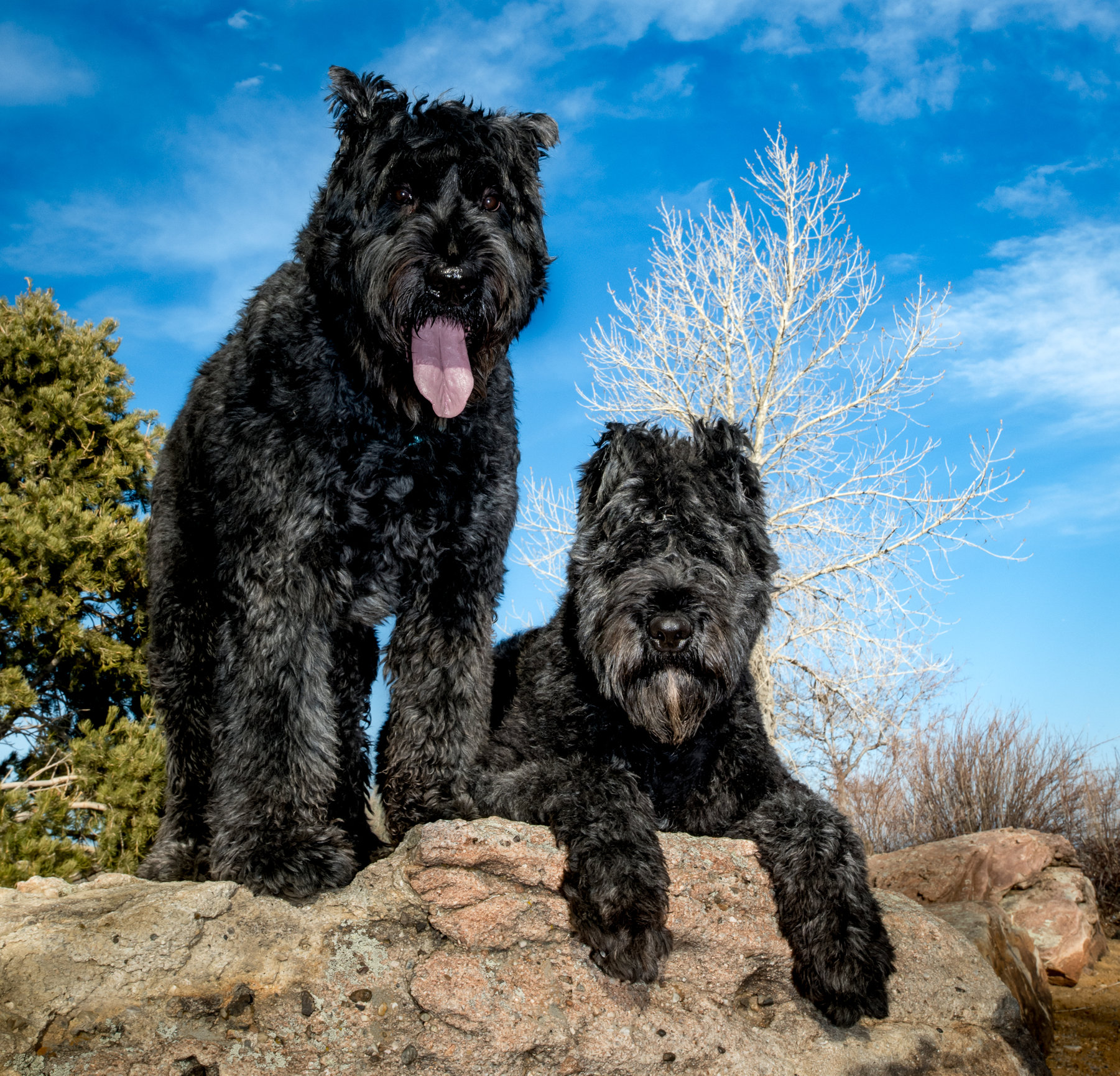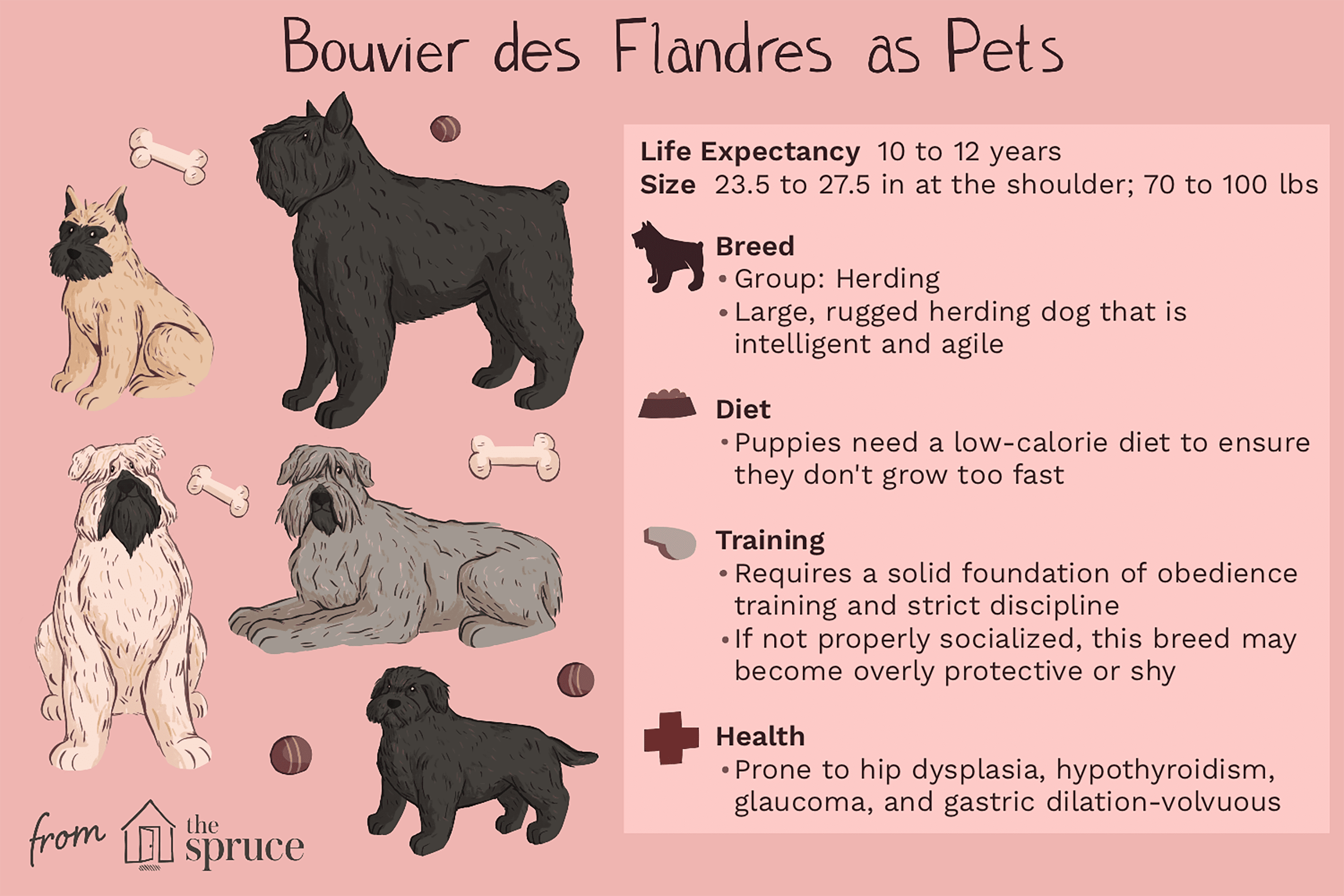Adopting a dog is a big decision, and choosing the right breed is essential for a happy and harmonious home. The Bouvier des Flandres is a breed that many potential adopters consider due to its unique characteristics and loyal nature. However, before making a commitment, it’s crucial to understand what this breed entails and whether it aligns with your lifestyle.
Key Takeaways
- Bouvier des Flandres dogs are loyal and protective, making them excellent family pets.
- Adoption costs range from $150 to $500, but expect ongoing expenses for grooming and healthcare.
- They require regular exercise and ample space to thrive, both indoors and outdoors.
- Grooming needs are significant due to their thick coats, requiring regular brushing and trimming.
- Their high prey drive may pose challenges in homes with smaller pets.
Bouvier des Flandres Adoption: Is it the Right Choice for You?
Deciding to adopt a Bouvier des Flandres involves more than just a love for dogs. It requires understanding their needs, temperament, and whether they fit into your family dynamics. This breed is known for its intelligence and strong-willed nature, making it important for adopters to be confident and experienced dog owners. Therefore, it’s not recommended for first-time or passive pet owners.

“Breed Highlight: Bouvier Des Flandres …” from www.fureverfriendsphotos.com and used with no modifications.
Understanding the Bouvier des Flandres Breed
The Bouvier des Flandres is a herding breed, originally bred for farm work in Belgium. They are large, muscular dogs with a thick, shaggy coat that protects them from harsh weather. These dogs are known for their calm demeanor and protective instincts, which make them excellent guard dogs and family companions.
However, they have a strong prey drive, which means they may not always get along with smaller animals. This trait can be managed with proper training and socialization, but it’s something potential adopters should be aware of. For those considering the journey, here’s a guide on the rescue pet adoption journey from shelter to sofa.
Cost Considerations for Adoption
Adopting a Bouvier des Flandres involves several costs that extend beyond the initial adoption fee. It’s important to consider both the upfront and ongoing expenses to ensure you’re financially prepared to care for your new pet.
Initial Adoption Fees
The initial adoption fee for a Bouvier des Flandres typically ranges from $150 to $500. This fee often covers basic veterinary care, including vaccinations and spaying or neutering. However, prices can vary depending on the rescue organization or shelter, so it’s wise to inquire about what’s included in the adoption fee.
Ongoing Care and Maintenance Expenses
Once you’ve brought your Bouvier des Flandres home, you’ll need to budget for ongoing expenses such as food, grooming, and healthcare. These dogs require high-quality food to maintain their health and energy levels, which can cost around $50 to $100 per month. For more tips on preparing your home for a new pet, check out our home preparation guide.
Grooming is another significant expense due to their dense coats, which require regular brushing and occasional professional grooming to prevent mats and tangles. Expect to spend approximately $50 to $100 every few months on grooming services.
Training and Socialization Costs
Training is essential for Bouvier des Flandres due to their strong-willed nature. Enrolling in obedience classes can help you establish a positive relationship and manage any behavioral issues. Training classes typically cost between $100 and $200 for a multi-week course.
In addition to formal training, ongoing socialization is crucial to ensure your dog is well-adjusted and comfortable around new people and environments. This can involve regular outings and interactions with other dogs and people.
Longevity and Health
When adopting a Bouvier des Flandres, it’s important to consider their lifespan and potential health concerns. For more detailed information, you can refer to this breed guide. Understanding these factors can help you provide the best care for your dog and ensure a long, healthy life together.
Average Lifespan
Bouvier des Flandres typically live between 10 to 12 years. With proper care, some may live longer, but it’s essential to be prepared for the responsibilities that come with caring for an aging dog. Regular veterinary check-ups and a healthy lifestyle can contribute to a longer lifespan. Consider the benefits of adopting senior pets to better understand the care needed for older dogs.
Common Health Concerns
This breed is generally healthy, but like all breeds, they are prone to certain health issues. Some common concerns include hip dysplasia, elbow dysplasia, and eye problems such as cataracts. Regular veterinary visits and health screenings can help detect and manage these issues early.
“Bouvier des Flandres puppies need a low-calorie diet to ensure they don’t grow too fast, which can make them more prone to bone disorders.”
Ensuring a Healthy Life
To ensure your Bouvier des Flandres lives a healthy life, it’s important to provide a balanced diet, regular exercise, and routine veterinary care. Maintaining a healthy weight is crucial to prevent joint issues, and regular grooming can help detect any skin problems or parasites early.
Additionally, mental stimulation is important for this intelligent breed. Providing toys, puzzles, and regular training sessions can keep your dog mentally engaged and prevent boredom-related behaviors.
Loyalty and Protective Instincts
The Bouvier des Flandres is renowned for its loyalty and protective instincts, making it an ideal companion for families seeking a devoted guard dog. These dogs form strong bonds with their owners and are naturally inclined to protect their family members. Their keen sense of awareness and alertness means they will often act as vigilant watchdogs, alerting you to any unusual activity around your home.
Interaction with Children
When it comes to children, the Bouvier des Flandres can be a gentle and affectionate playmate. Their patient and calm nature makes them well-suited for families with kids. However, due to their size and strength, supervision is recommended during playtime to prevent accidental knocks or injuries. Teaching children how to interact respectfully with dogs can foster a harmonious relationship.
Challenges with Other Pets
While Bouviers can coexist with other pets, their high prey drive may present challenges, especially with smaller animals like cats or rabbits. Early socialization is key to helping them learn to coexist peacefully with other pets. Introducing them gradually and under controlled circumstances can help manage their natural instincts and reduce potential conflicts.

“Bouvier des Flandres: Dog Breed …” from www.thesprucepets.com and used with no modifications.
Space and Living Requirements
Before adopting a Bouvier des Flandres, it’s crucial to consider your living space and whether it can accommodate this large and active breed. These dogs thrive in environments where they have room to roam and explore. For more insights on preparing your home for a new pet, check out this home preparation guide.
Ideal Home Environment
Ideally, a home with a spacious yard is best for a Bouvier des Flandres. They enjoy spending time outdoors and need plenty of room to stretch their legs. Urban living can work, but only if you commit to providing ample exercise opportunities and outdoor time. Regular walks and trips to the park can help fulfill their need for space.
It’s important to remember that Bouviers are not suited for apartment living unless you’re able to meet their exercise needs through frequent outings. They require a sense of freedom and space to move around comfortably.
Indoor & Outdoor Space Needed
Inside the home, Bouviers need enough space to move freely without feeling cramped. A large living area where they can relax and play is beneficial. Outside, a securely fenced yard is essential to prevent them from wandering off, as their curiosity and energy levels may lead them to explore beyond the boundaries. For more tips on preparing your home for a new pet, check out this home preparation guide.
Having a designated area for them to play and exercise can also help keep them mentally and physically stimulated. This can be as simple as a corner of the yard with toys and obstacles to engage their active minds.
Space for Exercise and Play
Exercise is a crucial component of a Bouvier des Flandres’ daily routine. These dogs need at least an hour of physical activity each day to keep them happy and healthy. This can include walks, runs, or play sessions in the yard. Incorporating activities that challenge their intelligence, such as agility training or puzzle games, can also be beneficial.
Grooming and Shedding Needs
Grooming is an essential part of caring for a Bouvier des Flandres, as their thick coats require regular maintenance to keep them looking their best. Understanding their grooming needs can help you manage their shedding and keep their coat healthy.
Coat Maintenance Tips
The Bouvier’s dense, double-layered coat requires regular brushing to prevent mats and tangles. Aim to brush them at least once a week, using a slicker brush or a comb designed for thick coats. Regular grooming not only keeps their coat in good condition but also provides an opportunity to check for any skin issues or parasites.
Managing Shedding
While Bouviers are not heavy shedders, they do experience seasonal shedding, particularly in the spring and fall. During these times, more frequent brushing can help manage the shedding and reduce the amount of loose hair around your home. A de-shedding tool can be particularly effective in removing the undercoat hair that tends to shed.
Seasonal Grooming Requirements
In addition to regular brushing, Bouviers benefit from occasional professional grooming to maintain their coat’s health and appearance. This typically involves trimming their coat every few months to keep it manageable and neat. Bathing should be done as needed, but not too frequently, to avoid stripping the natural oils from their skin. For more tips on preparing your home for a new pet, check out this home preparation guide.
High Prey Drive: What to Expect
The Bouvier des Flandres has a naturally high prey drive, a trait inherited from their herding background. This means they may be inclined to chase smaller animals, such as squirrels or rabbits, when outside. Understanding this instinct can help you manage their behavior and prevent any potential issues.
Training is essential to help mitigate the challenges posed by their prey drive. Teaching commands like “leave it” or “stay” can help redirect their focus and prevent them from giving chase. Consistent training and reinforcement can go a long way in managing this natural instinct.
It’s important to consider this trait if you have other small pets in the home. Ensuring your Bouvier is properly socialized and trained can help them coexist peacefully with smaller animals and prevent unwanted behaviors. For more insights on small pets, check out our article on angora rabbit care.
Understanding the Instinct
The Bouvier des Flandres has a strong prey drive, a characteristic that stems from their herding origins. This instinct can manifest in chasing behaviors, particularly when smaller animals are around. While this drive can be an asset in a working dog, it requires management in a household setting.
Understanding this instinct is crucial for potential adopters. It means being prepared to manage your Bouvier’s behavior and ensuring they receive adequate training to respond appropriately in various situations. Awareness of their surroundings and keeping them on a leash during walks can help prevent unwanted chasing.
Training to Mitigate Issues
Training plays a vital role in managing the Bouvier’s prey drive. Consistent obedience training can help establish control and prevent impulsive behaviors. Commands such as “leave it” or “stay” can redirect their focus and prevent them from chasing after small animals. For those considering adoption, understanding the rescue pet adoption journey can be beneficial.
Positive reinforcement is an effective training method for Bouviers. Rewarding them with treats or praise when they exhibit desired behaviors can reinforce good habits. Patience and consistency are key, as it may take time for them to learn and respond to commands reliably. For more insights, check out this rescue pet home preparation guide.
Considerations for Households with Smaller Animals
If you have smaller pets, such as cats or rabbits, it’s important to consider how a Bouvier’s prey drive may affect their interactions. Early socialization is essential to help them learn to coexist peacefully with other animals. Introducing them gradually and in controlled environments can help them adjust and reduce the likelihood of aggressive behaviors. For more tips, you can explore this home preparation guide for rescue pets.
Is the Bouvier des Flandres Right for You?
Deciding whether the Bouvier des Flandres is the right breed for you involves considering several factors, including your lifestyle, living situation, and experience with dogs. This breed’s unique characteristics can make them a wonderful addition to the right home, but they may not be suitable for everyone. For more insights, consider exploring pet adoption myths to ensure you make an informed decision.
Pros of Owning a Bouvier
Owning a Bouvier des Flandres comes with several benefits. Their loyalty and protective nature make them excellent family companions and guard dogs. They are intelligent and trainable, which can make them enjoyable to work with in obedience and agility activities. Their calm demeanor and affectionate nature also make them great companions for families with children.
Potential Drawbacks to Consider
Despite their positive traits, Bouviers can present challenges for some owners. Their size and energy levels require ample space and regular exercise, which may not be feasible for everyone. Their grooming needs are significant, requiring regular maintenance to keep their coat healthy and free of mats. Additionally, their prey drive can pose challenges in homes with smaller animals.
Final Recommendations
If you’re considering adopting a Bouvier des Flandres, ensure you have the time, resources, and commitment to meet their needs. They thrive in active households where they receive plenty of exercise, training, and attention. If you’re prepared to invest in their care and training, a Bouvier can be a loyal and loving companion.
Frequently Asked Questions (FAQ)
When considering adopting a Bouvier des Flandres, potential adopters often have questions about their care and compatibility with family life. Here are some common questions and answers to help guide your decision. For more insights, check out our pet home preparation guide.
- What are the exercise needs of a Bouvier des Flandres?
- Are Bouviers good for first-time dog owners?
- Do Bouviers have any specific dietary requirements?
- How do Bouviers typically get along with other pets?
These questions can help you assess whether a Bouvier des Flandres is the right fit for your family and lifestyle. For more insights, explore the pet adoption myths debunked to make informed decisions.
What are the exercise needs of a Bouvier des Flandres?
Bouviers require at least an hour of exercise each day to keep them physically and mentally stimulated. This can include walks, runs, or play sessions in a secure yard. Providing a variety of activities, such as agility training or puzzle games, can help fulfill their need for mental engagement.
- Regular walks or runs
- Play sessions in a secure yard
- Agility training or puzzle games for mental stimulation
Meeting their exercise needs is essential to prevent boredom-related behaviors and ensure their overall well-being.
Are Bouviers good for first-time dog owners?
Bouviers are generally not recommended for first-time dog owners due to their strong-willed nature and specific care requirements. They require confident and experienced handlers who can provide consistent training and socialization. First-time owners may find it challenging to manage their size, energy levels, and grooming needs.
Do Bouviers have any specific dietary requirements?
Bouviers thrive on a balanced diet that supports their active lifestyle. It’s important to provide high-quality dog food that meets their nutritional needs. Puppies, in particular, require a diet that supports healthy growth without encouraging rapid weight gain, which can lead to joint issues. For more information on pet care, you might find this rescue pet home preparation guide helpful.
How do Bouviers typically get along with other pets?
With proper socialization, Bouviers can get along with other pets, but their high prey drive may pose challenges. Early introductions and controlled interactions can help them learn to coexist peacefully with other animals. It’s important to supervise interactions and provide training to manage their natural instincts. For more insights, check out this guide on pet adoption myths.


